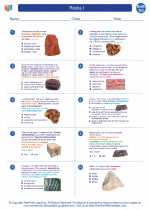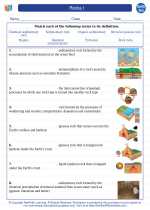Conductors
Conductors are materials that allow the flow of electric current through them. They are characterized by their ability to easily transfer heat and electricity due to the free movement of electrons within their atomic structure. The most common conductors are metals such as copper, aluminum, and silver, as well as certain solutions and gases.
Properties of Conductors:
- Electrical Conductivity: Conductors have high electrical conductivity, meaning they allow electric current to pass through them with little resistance.
- Thermal Conductivity: They also have high thermal conductivity, allowing them to transfer heat efficiently.
- Free Electrons: The outermost electrons in the atoms of conductors are loosely bound and can move freely, enabling the flow of electric current.
- Ductility and Malleability: Many conductors, such as metals, are ductile and malleable, allowing them to be shaped and drawn into wires without breaking.
Examples of Conductors:
Applications of Conductors:
Conductors have a wide range of practical applications in everyday life and technology, including electrical wiring, power transmission, electronic circuits, and various industrial processes.
Study Guide:
To study conductors, it is important to understand the principles of electrical conductivity, the atomic structure of metals, and the factors that influence a material's ability to conduct electricity and heat. Here are some key points to focus on:
- Define what conductors are and provide examples.
- Explain the atomic structure of metals and how it contributes to their conductivity.
- Discuss the relationship between electrical conductivity and thermal conductivity in conductors.
- Explore the applications of conductors in various technological and industrial settings.
- Compare the properties of conductors with those of insulators and semiconductors.
Additionally, practical experiments and demonstrations involving the behavior of conductors in electrical circuits can help reinforce the understanding of their properties and applications.
By mastering the concepts of conductors, you will gain a deeper understanding of the role they play in the transmission of electricity and heat, as well as their significance in modern technology and engineering.
.◂Earth Science Worksheets and Study Guides High School. Rocks I

 Worksheet/Answer key
Worksheet/Answer key
 Worksheet/Answer key
Worksheet/Answer key
 Vocabulary/Answer key
Vocabulary/Answer key
 Vocabulary/Answer key
Vocabulary/Answer key
 Vocabulary/Answer key
Vocabulary/Answer key
